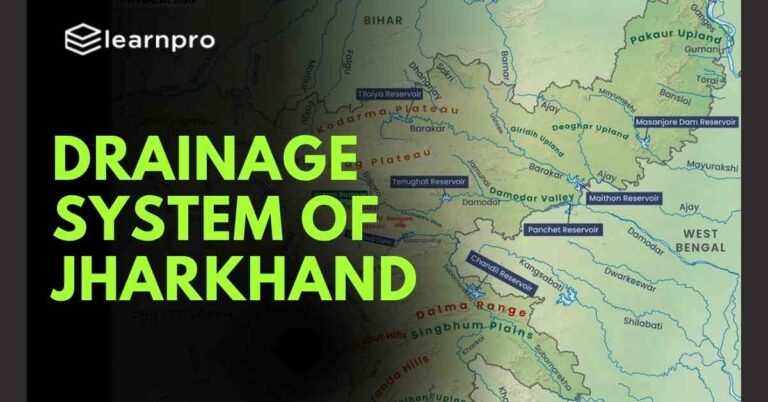January 25, 2026 4:31 am
Dikus of Jharkhand holds significant cultural and historical connotations, particularly among the tribal (Adivasi) communities. Originating from the tribal languages of Jharkhand, such as Mundari and Ho, “Diku” is commonly used by Adivasis to describe outsiders or non-tribals who are perceived as exploiters or intruders in their lands and socio-economic systems. This term has evolved over time, reflecting the complex interactions between the Adivasis and non-tribal groups.
Understanding the Concept of “Diku”

Origin and Meaning
The word “Diku” has its roots in tribal languages and initially referred to foreigners or outsiders who entered the tribal areas for resources, often exploiting the Adivasis and disrupting their way of life. The term has a negative connotation, symbolizing individuals who come to tribal lands for personal gain, frequently disregarding the welfare and rights of the indigenous people. Historically, “Dikus” were associated with exploitative groups such as moneylenders, landowners, merchants, and colonial officials.
Historical Context
The concept of the “Diku” became prominent during British colonial rule, when the Adivasis faced extensive exploitation from outsiders. With the discovery of mineral wealth and fertile lands in Jharkhand, non-tribal populations migrated to the region in significant numbers. The Adivasis perceived these newcomers as Dikus because they brought with them systems of debt, land ownership, and labor practices that were foreign and oppressive to the indigenous communities.
Colonial policies allowed Dikus to purchase tribal lands, which led to the displacement of Adivasis and the erosion of their traditional ways of life. This resentment was a driving force behind several Tribal uprisings, including the Kol Rebellion (1831-1832) and the Santhal Rebellion (1855-1856). During these uprisings, Adivasis fought not only against the British but also against the Dikus who they saw as agents of their subjugation and dispossession.
Modern Usage and Implications
In contemporary Jharkhand, the term “Diku” is still used, though its meaning has broadened. Initially applied to British colonizers and their agents, it now encompasses non-tribal inhabitants of Jharkhand who are perceived as a threat to the Adivasi way of life. These could include businessmen, industrialists, government officials, and even migrant laborers from other states who have settled in Jharkhand over the years.
The expansion of industries, mining projects, and urban development has led to an influx of non-tribal populations into Jharkhand, further intensifying the sense of alienation among Adivasis. Many Adivasi leaders argue that the Dikus continue to exploit the natural resources of Jharkhand while providing limited benefits to the local indigenous populations. They also believe that the presence of Dikus has contributed to social and economic inequalities, with the wealth generated by these resources rarely benefiting the Adivasis.
Socio-Political Impact
The perception of non-tribals as Dikus has significantly influenced politics and social movements in Jharkhand. It has contributed to a strong sense of Adivasi identity and has fueled demands for autonomy, land rights, and cultural preservation. The Jharkhand Movement, which ultimately led to the formation of the state in 2000, was driven in part by the desire to protect Adivasi lands and resources from Dikus.
Today, issues such as land acquisition, displacement, and environmental degradation continue to create tension between Adivasis and non-tribal communities. Political parties and Adivasi organizations often use the term “Diku” to galvanize support for policies that protect indigenous rights and promote sustainable development that benefits local communities.
Evolving Relationships and Perspectives
While the term “Diku” historically held a negative connotation, there are ongoing efforts to bridge the gap between Adivasis and non-tribal communities. Some Adivasi leaders and organizations work towards integrative approaches that emphasize dialogue, mutual respect, and the equitable distribution of resources. Recognizing the contributions of non-tribal communities to Jharkhand’s development, they advocate for collaborative solutions that address the socio-economic needs of both groups.
However, challenges remain, as issues of land rights, cultural preservation, and economic equity continue to shape the relationships between Adivasis and non-tribals. As Jharkhand seeks to balance development with the preservation of its unique heritage, the concept of the “Diku” will likely continue to influence its social and political landscape.
Conclusion
The term “Diku” is more than a label; it encapsulates the historical and ongoing struggles of Jharkhand’s Adivasi communities against exploitation and marginalization. While it initially referred to British colonizers and their agents, its meaning has expanded to include any perceived outsiders who threaten the traditional Adivasi way of life. As Jharkhand navigates the challenges of modern development, the legacy of the Dikus serves as a reminder of the importance of protecting indigenous rights and fostering inclusive growth that benefits all communities.
Useful Links >>
JPSC Notes: Access expertly curated notes covering essential topics for both JPSC Prelims and Mains exams.
14th JPSC PT Exam Comprehensive Test Series: Enhance your preparation with a structured test series designed to cover all aspects of the JPSC Preliminary Test syllabus, emphasizing Jharkhand-specific topics and current affairs.
JPSC Notification 2024: Stay informed about the latest updates, including exam dates, eligibility criteria, and vacancy details for the JPSC 2024 examination.
General Introduction to Jharkhand for JPSC Exam: Gain a comprehensive understanding of Jharkhand’s history, geography, economy, and culture, crucial for the JPSC exam.
official Website: https://www.jpsc.gov.in/





